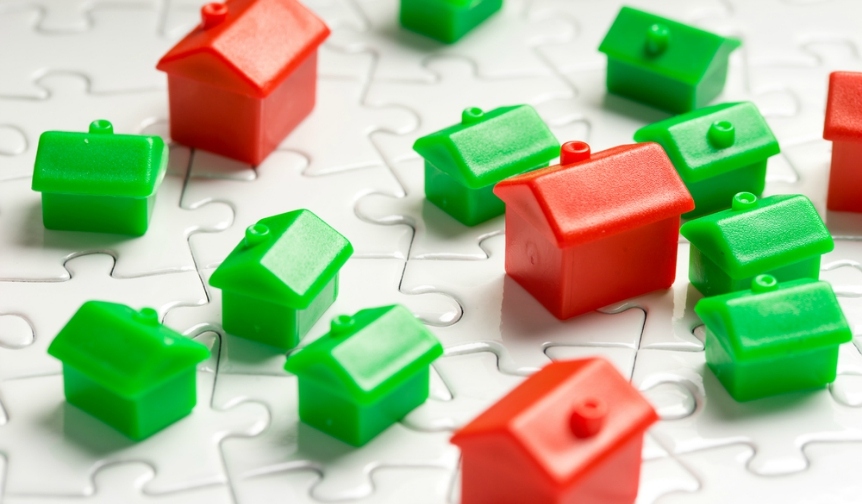A quick summary of the properties (or real estate) which are available in the UK to help us decide what we want to buy.

What kinds of properties could we buy?
We have agreed to actually do this buy to let thing. The next question is what kinds of properties could we buy? The UK property market has 4 broad categories of real estate, each one has it’s pros and cons. Which one is going to be right for us?
Flats
The floor space in flats is smaller than in houses. This is because flats are mostly found in urban areas. You buy flats leasehold, unless you buy the whole building. This means that there are often annual maintenance charges to consider.
You can find flats in a purpose built block or in a building that has been converted into several dwellings (e.g. a house conversion).
If you find a flat which has the kitchen, bedroom and living space in a single room, in general, they’ll probably be calling it a studio flat.
What’s more, there are also maisonettes which are a 2 level flat with a build in staircase. Like single floor flats they can be found in purpose built blocks or converted buildings.
Houses
Detached houses, semi-detached houses, terraced houses, cottages, bungalows and mansions. These are all different sizes and shapes of an independent dwelling with living and sleeping accommodation.
They often have some kind of garden or outside space. Some of them have parking. The bigger ones have lots of land too. Houses can usually be bought freehold.
Commercial
The law divides commercial property into 5 sub categories. These are based on the classifications for how each property can be occupied. Renovations and / or altering the use of a building means getting planning permission and even use reclassification (a different set of categories) from the local authority.
The sub categories are things such as:
- Offices
- Retail – shops and shopping centres
- Industrial – warehouse and factories
- Leisure – hotels, pubs, restaurants, cafes, sports facilities, and gyms
- Healthcare – medical centres, hospitals, and care homes
Mixed-use
This means a mixture of commercial and residential. For example a shop, office or restaurant with a flat or maisonette above it. As a result, the stamp duty that you will pay is lower on property which is classed as commercial. Unlike other buy to let properties, there is no additional dwelling surcharge.
In this case, the landlord usually buys the freehold to the building and rents out the commercial and residential elements to different tenants. In the light of this, the down side is that mortgages can be more difficult to get for a mixed-use property.
